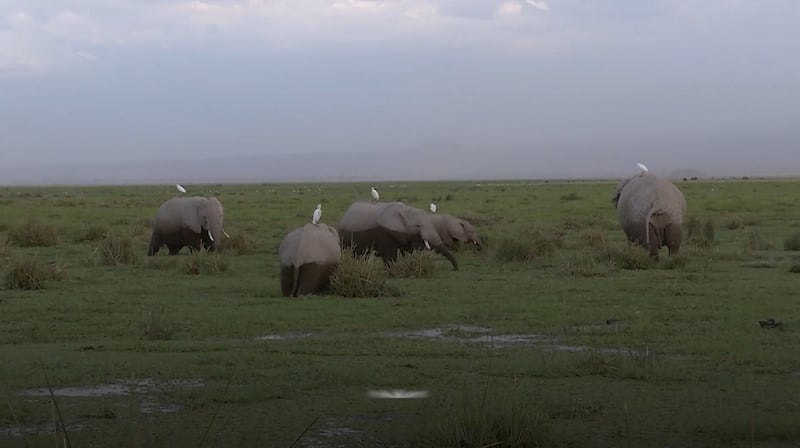An elephant baby boom has seen a record number of calves born in a national park in Kenya.
So far 205 baby elephants have been born at Amboseli National Park in 2020, a record number which is attributed by experts to good rainy seasons in 2018 and 2019.
“We need happy news with all the things happening in the world, but particularly with the Covid problem, and so we like to see something is not bothered by it,” said Cynthia Moss, founder of the Amboseli Trust For Elephants.
“They are just going on with lives down here not concerned about the pandemic and enjoying their calves, enjoying life because we had such good rains in 2018 and 2019 that there is still a lot of grass.”
Elephant pregnancies last around 22 months, with the larger foetus taking longer to develop than those of humans.
Ms Moss is expecting more births before the end of the year.
“December is usually a high birth month, so we’ll expect more,” she said.
“But now we have a record, this is the most births we have ever had in one year in Amboseli.”

There are around 1,500 elephants in total in the park, which covers 392 square kilometres along Kenya’s border with Tanzania.
The boost in numbers in the park reflects an uptick in the country more broadly.
Kenya is “on track to recovery” after seeing its elephant population devastated in the second half of the last century, according to Patrick Omondi of the Kenya Wildlife Service.
In the 1970s, there were more than 160,000 elephants in Kenya, according to Mr Omondi, but that number had dropped to 16,000 in by 1989.
“Today, we can say with confidence that that population has doubled to almost 35,000 elephants,” he said.
“We are not out of the woods yet because there are some communities globally not in Kenya that still see value in ivory.”








